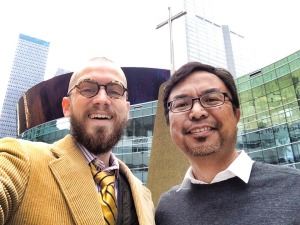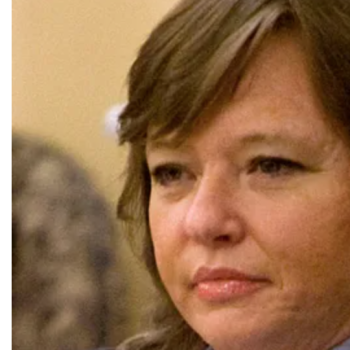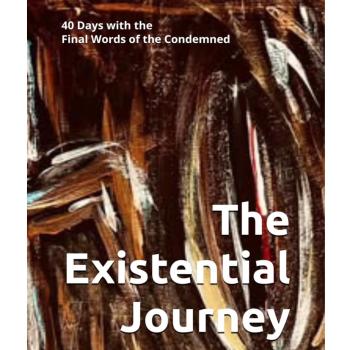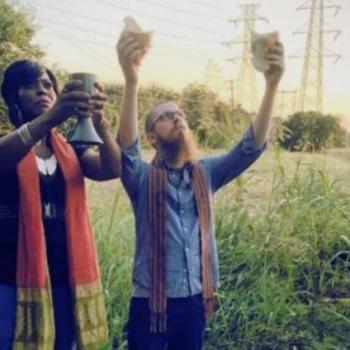J: Is there room in the Bible for polyamorous relationships?
D: I don’t see polyamory spoken of positively at all in scripture. When polyamory is mentioned, it is not approved or valued.
J: I think we are going to disagree on this. There are multiple points in the Old Testament were intimate love is shared equally by more than two people. I see love as the thrust of scripture. Throughout the scriptures, love being confined to a couple and only shared within that couple is not the normative construct. In the Old Testament, you have all of these plural relationships. In the New Testament, we are encouraged to not get married at all. Despite what evangelicals and fundamentalists would have us to believe, marriage and family is not the chief end of the scriptures at all.
D: The polyamorous relationships in the Old Testament are not motivated by love. These relationships are motivated by money and power. The polyamorous relationships in the Old Testament seem destructive. The men function as misogynistic and patriarchal dictators of multiple women.
J: There is no question that the way that polyamory was practiced in the Old Testament is problematic. When Jesus comes and shows us a new way of being, I have to wonder if that doesn’t open the world up to new and equal ways of sharing love. On some level, I think the disciples and Jesus were involved in some sort of polyamorous relationship. Love seemed to be pretty free flowing around Jesus.
D: First, I don’t believe the disciples had any type of sexual relationship with Jesus. Second, Paul makes it clear that marriages are to be made up of two people. Paul places a premium on singleness and calls all that are able to remain as such
J: I find Paul’s patriarchal words to be derogatory, demeaning and dismissive.
D: I get it. It’s like… If you can’t control your body then go ahead… I don’t think that is what Paul meant to convey. When you share your self with more than one person, the intimacy factor begins to go down. Love begins to lesson when it is shared beyond the intimate partner.
J: I disagree. I think that it is quite possible for love and intimacy to grow the more that it is shared.
D: How about an analogy? I think the more limited something is the more valuable it becomes.
J: Would you not say that love is a limited commodity anyways? I think love is something to embrace with all that we are whenever we find it.
D: It is true that love should be cultivated wherever you find it, but I am talking about the sexual intimacy part. When I think about my relationships with people, there are different levels of intimacy that I embrace with different people…but there is only one person that I am most intimate with…my wife. There are things that I do with my wife that I don’t do with anyone else. If I were to expand that, the intimacy would diminish.
J: I experience deep intimate relationships with persons who are not my wife. Danny, I would say that our friendship is an intimate relationship for me. I have been really blessed by knowing you. The more difficult piece of this is that many polyamorous relationships are situations where our culture has pushed closeted LGBT people to get married and instead of getting divorced from someone they have grown to love…some people decide to bring a third partner into the relationship. This situation is a result of our oppression. How can lovingly tell these folks that what they are doing is wrong? Some of these polyamorous relationships come from a desire to do no harm.
D: I will have to admit that I don’t know anyone in a polyamorous relationship. I feel like I can only speak from a distant theoretical understanding. This is a subject that I have little experience with.
J: Would you welcome a polyamorous family into your church?
D: I would receive them without question.
J: Would you bring all three parents or four parents up during a baby dedication or any other special church service?
D: I have no desire to police the relationships of our people.
J: I am not interested in condemning love. If people have learned to love each other and not do violence to each other, I just want to let them be. I love my neighbor as my self by letting them be.
D: I don’t think that scripture gives a robust position on this topic.
J: I don’t think that scripture gives any position on this topic.
D: I don’t think there is enough evidence in scripture to outright condemn polyamory. I just don’t believe it is the ideal that scripture is pointing us towards.
J: What about celebrating it? How would you help them to feel a part of the community?
D: I would invite them into my home. I would treat them the same as I would a relationship made up of two people. I would respect whatever they wanted to be called. I would love them.
J: You know we don’t believe in the holy couple. We believe in the Holy Polyamorous Trinity.
D: Throughout the world, we have spent so much time trying to manipulate and control people’s relationships. Whatever they look like, we need to spend more time helping people strengthen their relationships. I do believe that.
J: I don’t believe that the polyamorous struggle for equality is all that different from the LGBT struggle for equality. Love is love. I believe that the people of God must always stand on the side of love.
* Brother D asked me to add this clarification from his perspective:
So to be clear, even though polygamy was allowed in the OT, I believe the trajectory of scripture moves us towards monogamy. So when I say, I wouldn’t police the relationships, I say that in the same way missionaries have addressed polyamory in other cultures. What I meant is similar to what John Piper’s stance is in understanding that we need to give grace to people who are already in these relationships. Piper gives insight into the dilemma missionaries find themselves in when they encounter polygamy. Do we police the relationship and force them to divorce? Or do we leave room for grace?
John Piper writes, “When a polygamist is converted what should he do about his marriages? My inclination is to cut a lot of slack in the mission field as people move from the first to the second generation. So many things culturally have to be adjusted to biblical reality. Jesus, I think, clarified for us that marriage is one man and one woman, as it was in the beginning in Genesis 2:24. So that the divorce features of Deuteronomy were “given for the hardness of your heart, but it was not always so. And so now I don’t want you to do what they were doing.” I think polygamy fits into that same paradigm. God tolerated polygamy among the patriarchs. He never in the Old Testament communicated, “Stop doing that,” except by implication from Genesis 2….So I think you shouldn’t be married to two women today, or a woman to two men. And yet there are cultures that do it. And so you want to go evangelize those cultures. And you win them to Christ and now they have two wives. I might say, “OK, those who have two wives, be faithful to both of them until the next generation, or until one of them dies. But never do this again.” It’s hard for me, culturally, to know what the alternatives would be. In a sense I want to step back and say to the missionaries, I’m so distant from your problem at this point, that I don’t feel like I should get on a soap box and tell you how to do this. I want the principle to be clear. Preach to them, “One wife.” Now they may have a way of figuring that out so that they’re not having two wives anymore, but I just don’t know enough about the situation.”
I also don’t think describing the trinity as a polyamorous relationship is helpful since it’s a language that would affirm polyamory. But Jeff, these are the places we disagree and it’s always good to have dialogue with you.

















